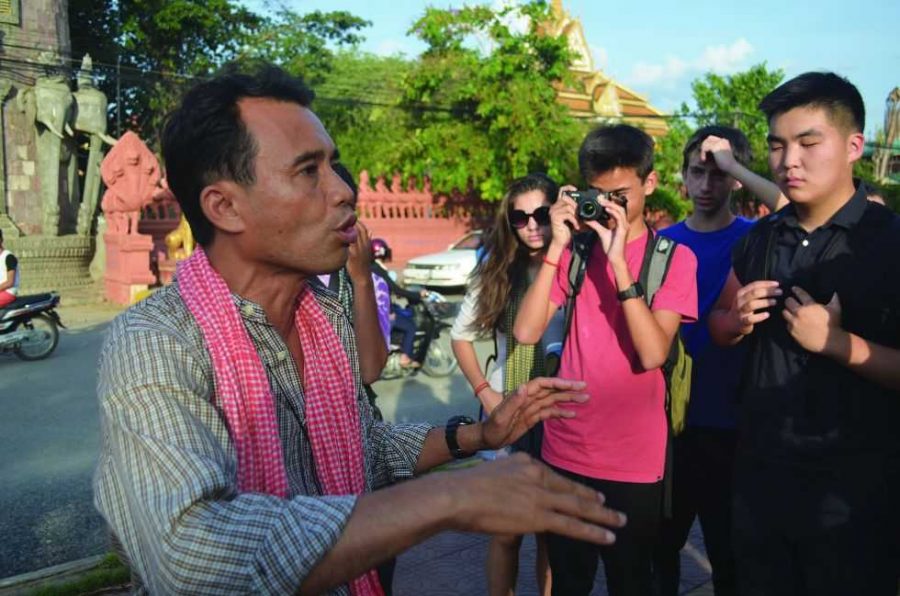Standing in Junom, the village where his mother lived after the Khmer Rouge took her family’s home, William Chow ’17 took out his camera and begins to film the scenery.
Chow’s mother is a survivor of the Cambodian genocide that began in 1975, and Chow wanted to tell her story. He said it felt incredible to be in the exact place where his mom lived during that time in her life, and he was able to understand her experiences in a new light.
“My mom always talked about Cambodia in terms of how affected she was from the genocide, and I went to Cambodia expecting a stricken and poor country,” Chow said. “After I started meeting and talking to all the local people, I realized how human and similar to me they are.”
Chow was one of 19 students who attended HW! Go’s Digital Storytelling Adventure trip to Cambodia. Students on the 11-day trip visited the cities of Phnom Penh, Battambang and Siem Riep. The goal of the trip was for each student to create a short documentary focusing on one aspect of Cambodian life.
After learning that sex trafficking is the second largest industry in Cambodia, William Park ’17 decided to attempt to shed light on the problem. Park recognized that people his age and younger were being forced to become sex workers, and visiting the country allowed him to see firsthand the issues they face every day.
“The process of filming and interviewing allowed me to at the very least spread some awareness to the troubles happening in Cambodia,” Park said.
Gaulke and visual arts teacher Joe Medina chaperoned the trip, along with tour organizer Alethea Paradis and journalist Jeff MacIntyre. Students also visited various historical sites such as the Killing Fields, the Angkor Wat and the Royal Palace.
“I didn’t know that much about Cambodia before,” Marina Weidmann ’17 said. “This trip made me much more aware of the history and the environment in the country.”
Much of the trip was focused on understanding the impact of the Cambodian genocide on the people.
“I’ve never been to a place so affected by one thing,” Weidmann said. “Everyone you talk to is affected by it in some way.”
Students learned that the arts was one area of Cambodian life that was largely diminished by the genocide. They attended several performances sponsored by a program called Cambodian Living Arts, which aims to restore the arts that were wiped out by the genocide. Henry DiNapoli ’17 decided to focus his documentary on the work done by CLA.
“I was able to interview current and former students,” DiNapoli said. “It was really cool to see what they had to say about the work done by the organization.”
Many students felt their perception of Cambodia and the world was changed as a result of the trip.
“A country that we only know through what we learn in history class has so much more to offer,” Cole Kawana ’16 said.
Others found that what they had previously thought about Cambodia was incorrect.
“We thought these people might be very sad because they don’t have much,” Sebastian Ko ’19 said. “But when we went there, we saw that they were happy. I learned that even without a lot of material possessions, you can get enjoyment out of life.”































